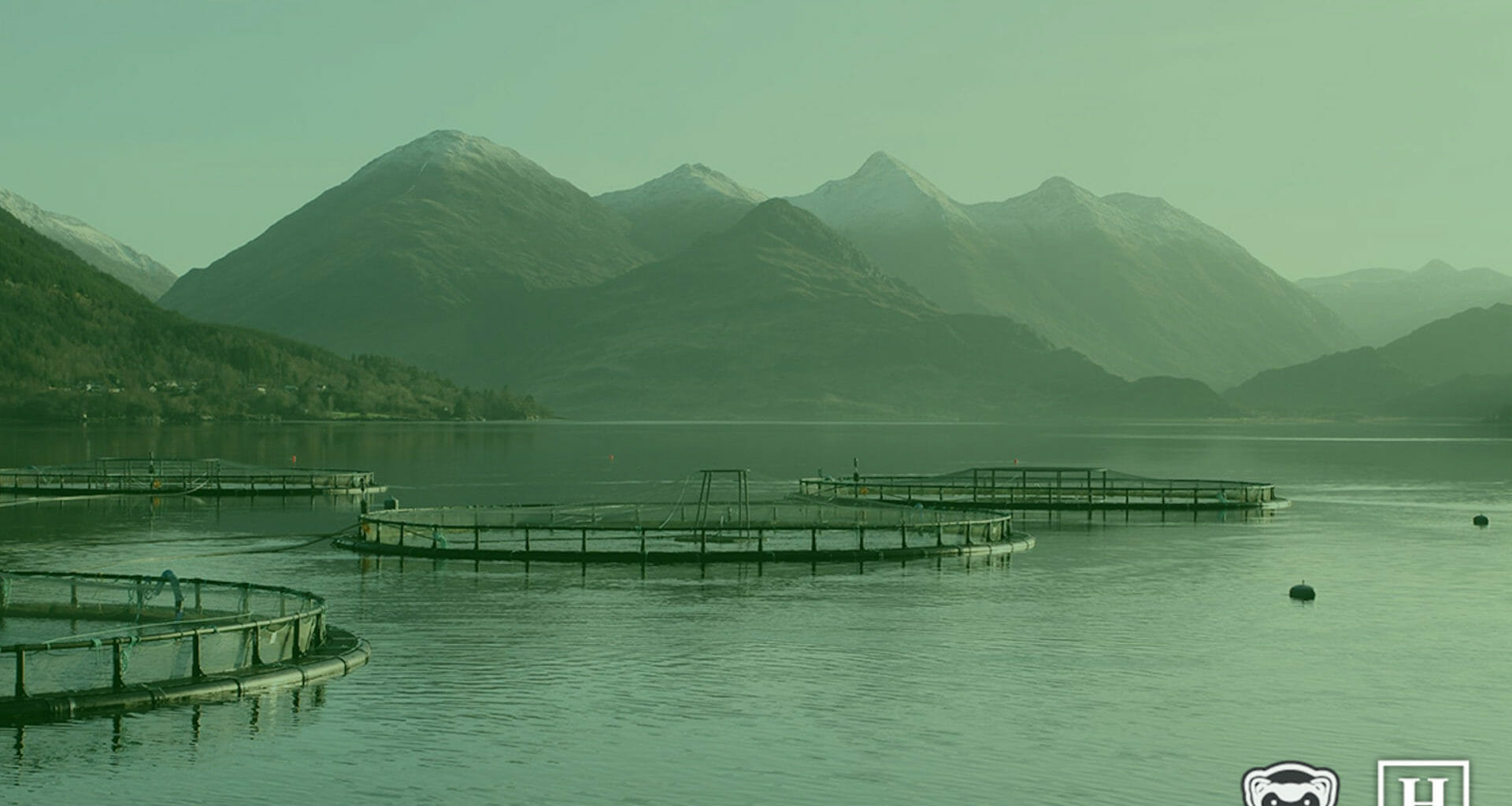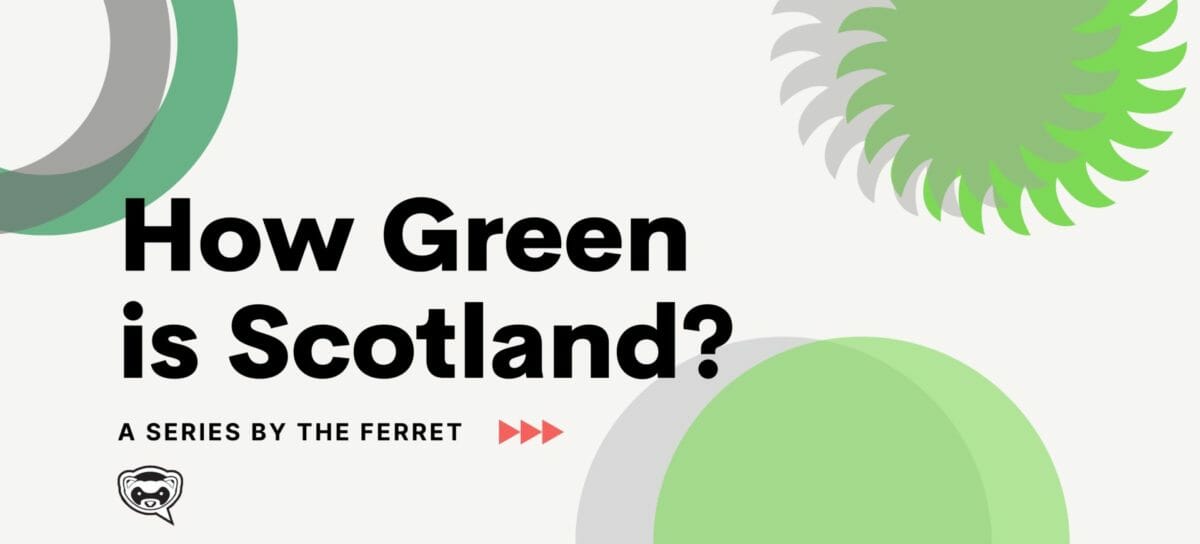Over one in ten of Scotland’s fish farms have been rated as “unsatisfactory” by the Scottish Government’s environmental watchdog because of pollution, pesticide and reporting breaches, The Ferret can reveal.
The Scottish Environment Protection Agency (Sepa) has assessed over 40 of some 400 salmon farms around the coast as either “very poor”, “poor” or “at risk” because they broke, or threatened to break, environmental rules in 2019.
Campaigners have accused the £1bn industry of treating the seas as “sewers”, and called for discharges from salmon cages to be contained. Fish farming was damaging Scotland’s environmental reputation, they argued.
Salmon companies pointed out that nearly nine out of ten farms had met “tough environmental standards” in 2019. There had been an “upward trend in environmental compliance” in recent years, they said.
The publication of Sepa’s environmental compliance assessments for 2019 has suffered prolonged delays due to the pandemic and a cyber attack. Draft data posted online by criminal hackers has been analysed and verified by The Ferret.
The data suggests that fish farming is one of Scotland’s most polluting industries, after the waste and water industries. The 40 plus fish farms scattered around the highlands and islands assessed as unsatisfactory for 2019 include hatcheries as well as salmon cages in lochs, and are operated by different companies.
According to Sepa, many of them have breached environmental limits on discharges of pesticides and wastes, putting wildlife at risk. Many have also failed to report compliance data in time.
Correspondence released under freedom of information law shows that some of the alleged breaches involve the toxic pesticide, emamectin, which is used to kill the lice that can infest farmed fish. Companies, however, have often disputed Sepa’s assessments, arguing that they shouldn’t be rated as poor.
The anti-fish-farming campaigner, Corin Smith, who runs the Inside Scottish Salmon Feedlots website, described Sepa’s assessments as “more damning evidence” that Scotland’s seas were “sewers for salmon farm waste”.
He said: “You can’t make salmon farming sustainable or environmentally friendly so long as their profits rely on being able to dump their waste in our seas for free.”
Sectors such as salmon farming continue to drag Scotland’s environmental reputation down.
Mark Ruskell, Green MSP
Coastal Communities Network Scotland, which brings together 18 groups concerned about the marine environment, claimed that fish farms dumped waste equivalent to the sewage from half of Scotland’s population.
“It’s time to stop farming fish in open nets. There are viable alternatives, but they would reduce the companies’ profits. They should do it. The sea is not a sewer,” said the network’s John Aitchison.
The wild fish group, Salmon and Trout Conservation Scotland, argued that there had been “very little improvement” over the years. “Sepa is not on top of its game,” said the group’s solicitor, Guy Linley-Adams. “Where are the prosecutions?”
The Scottish Greens also criticised the fish farming industry’s pollution record. “Sectors such as salmon farming continue to drag Scotland’s environmental reputation down,” said the party’s environment spokesperson, Mark Ruskell MSP.
Almost nine out of every ten salmon farms are meeting — and many are passing with flying colours — the tough environmental standards set down by Sepa.
Hamish Macdonell, Scottish Salmon Producers’ Organisation
The Scottish Salmon Producers’ Organisation, which represents fish farming companies, defended the industry’s performance. “As these figures have been stolen they can’t be verified,” said the organisation’s director of strategic engagement, Hamish Macdonell.
“But we expect the real statistics, when they are published, to show that almost nine out of every ten salmon farms are meeting — and many are passing with flying colours — the tough environmental standards set down by Sepa.”
He added: “We also expect them to reflect the upward trend in environmental compliance that has been so marked in Scottish salmon farming in recent years and the huge efforts made by our farmers to make sure Scottish farmed salmon remains the best in the world.”
The Scottish Environment Protection Agency declined to comment on “illegally published” data. It reiterated that environmental compliance was “non-negotiable”, and that it was working to improve the performance of all companies.
Sepa’s compliance assessments for 2019 are expected to be published before Christmas.
How Green is Scotland? is a week-long series for The Herald by The Ferret, an award-winning investigative journalism platform in Scotland. It is an editorially independent, not-for-profit co-operative run by its journalists and members.
You can join for £3 a month.
Photo Credit: The Herald















